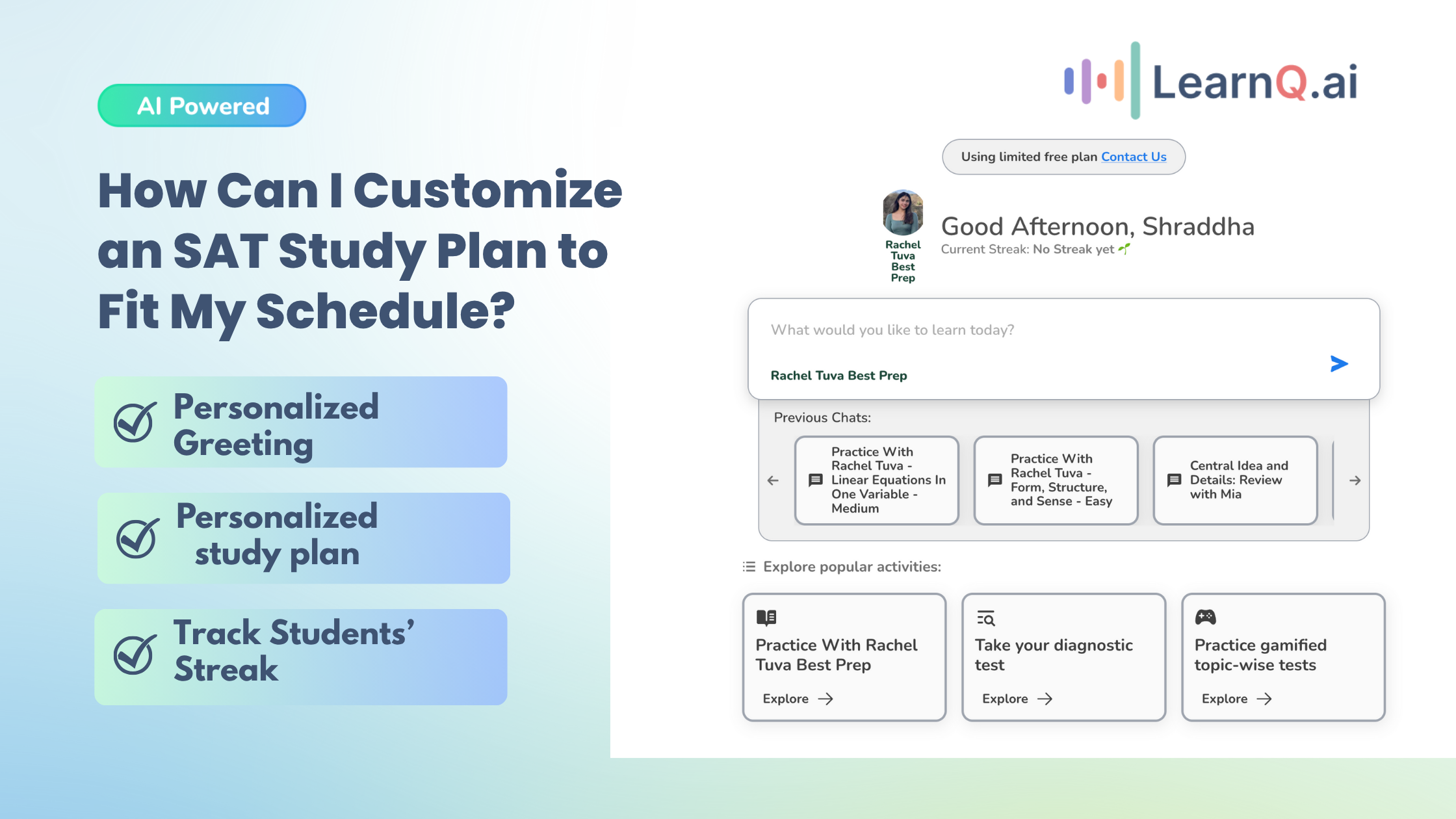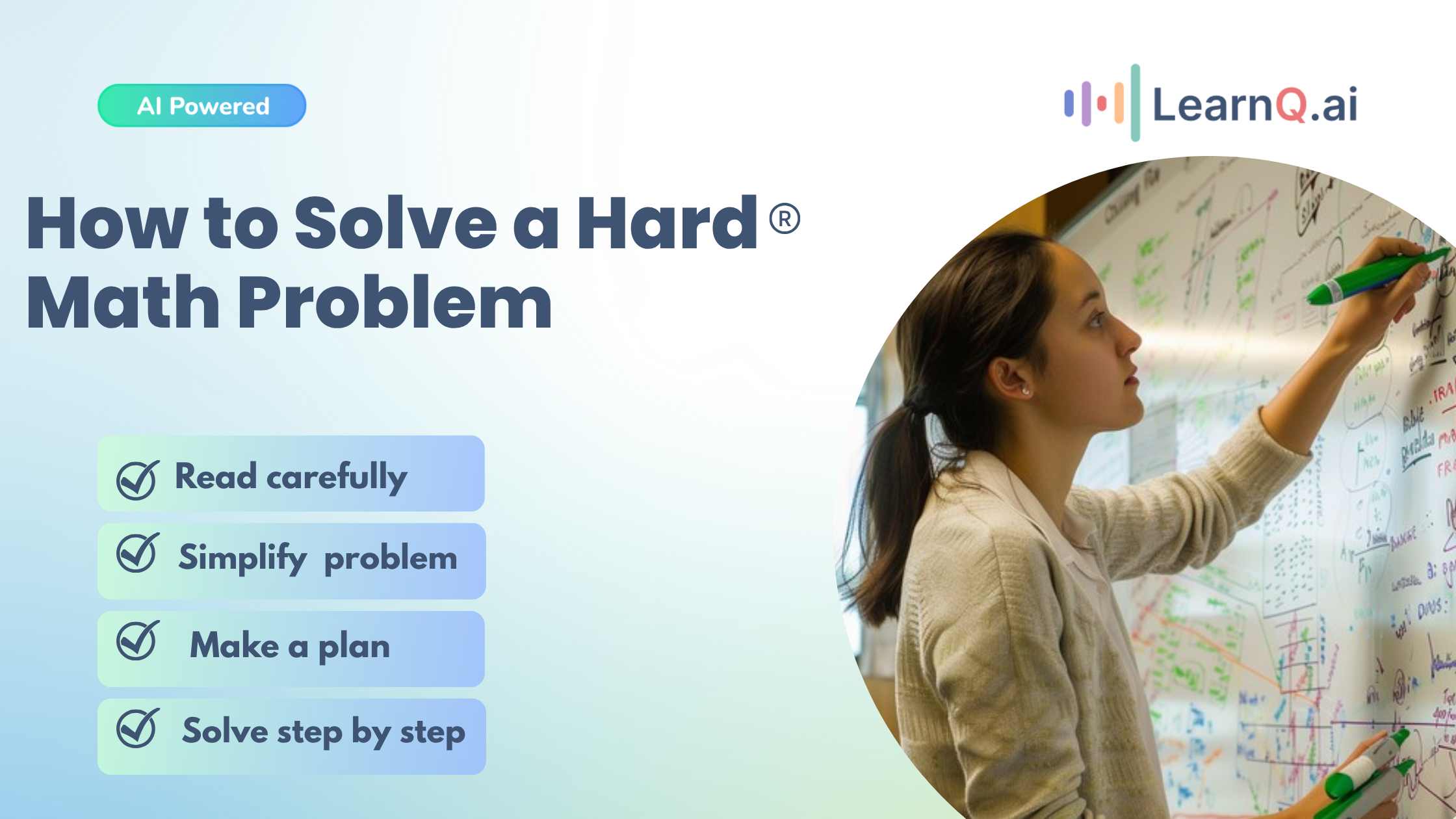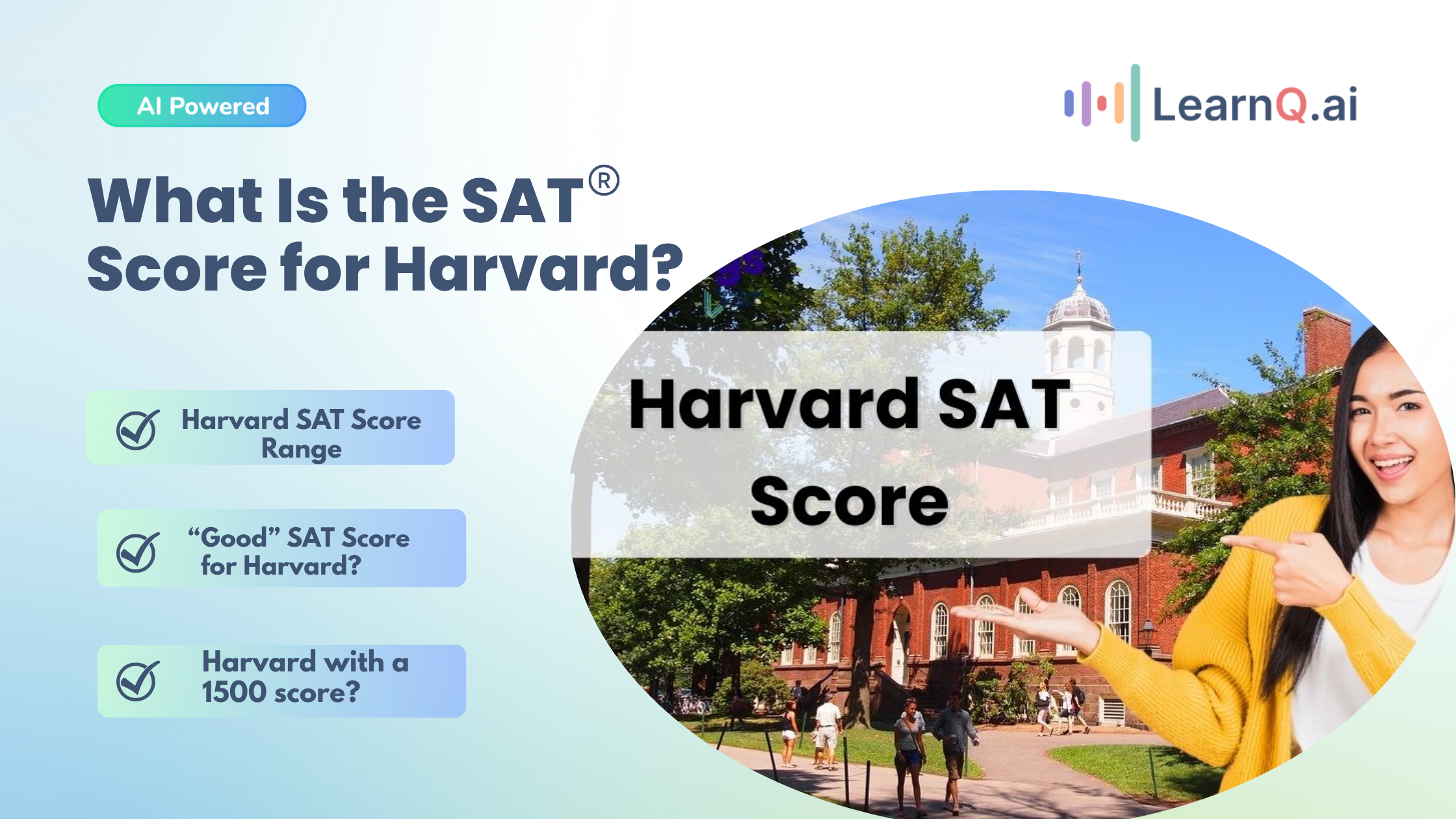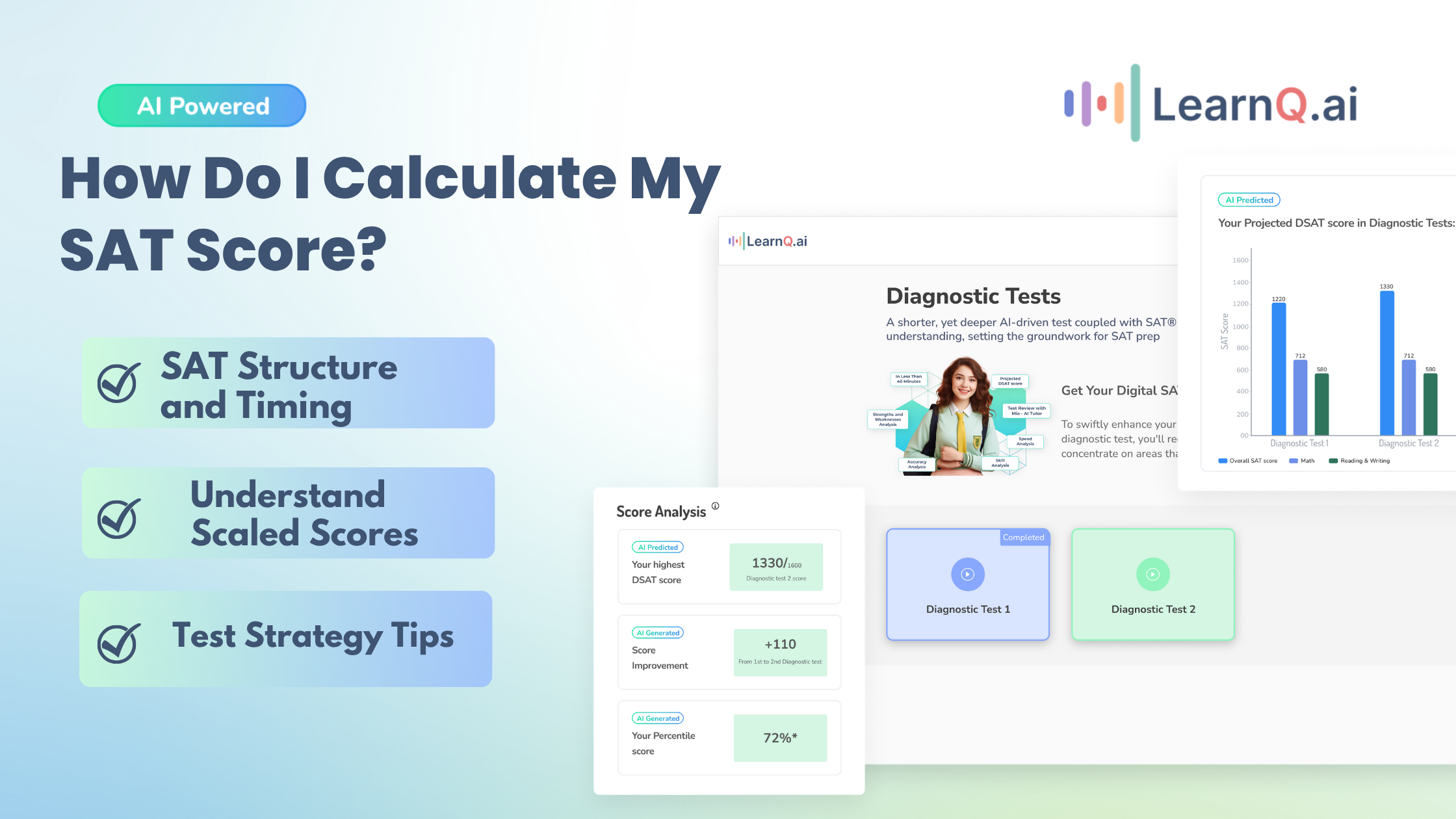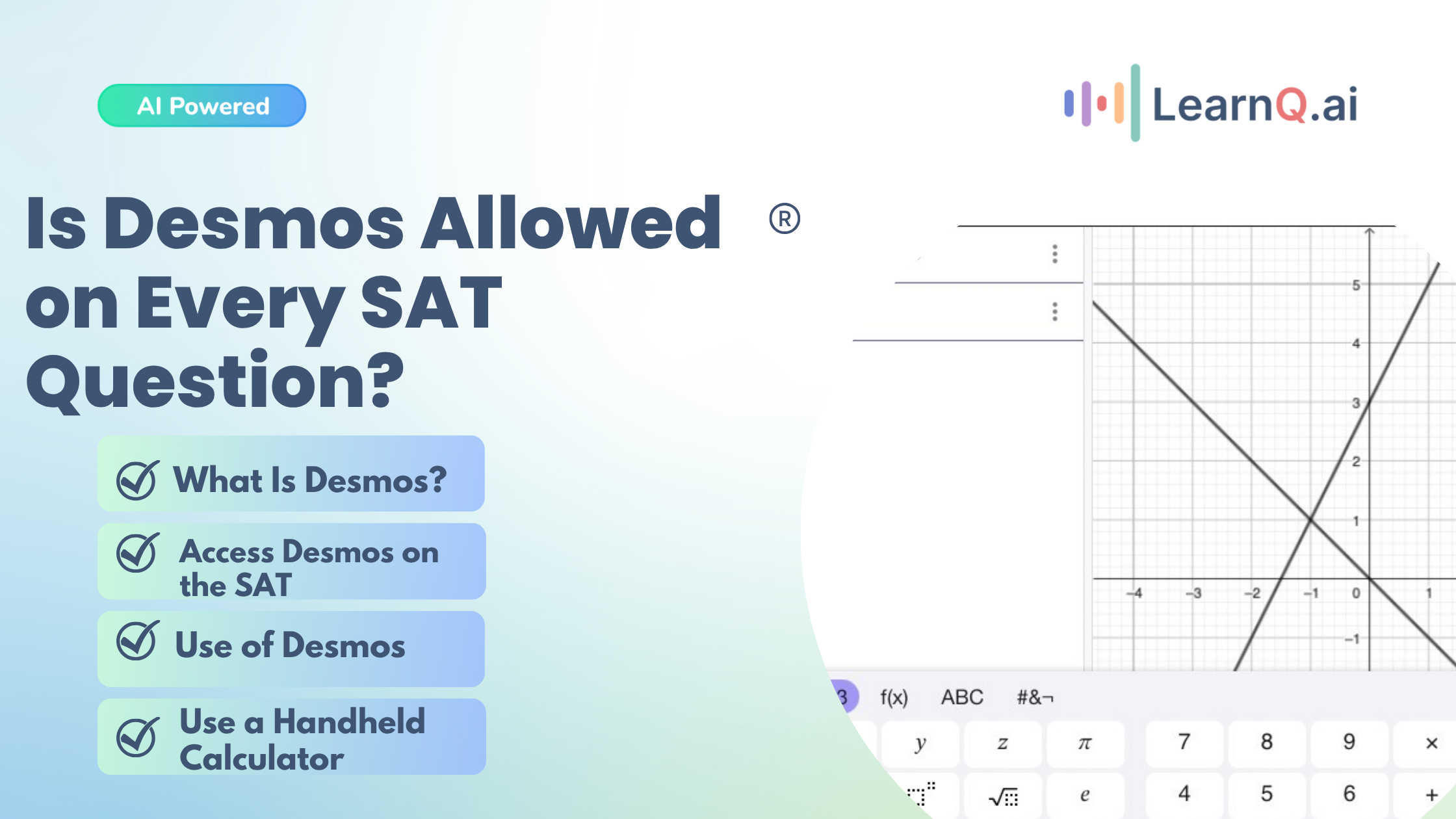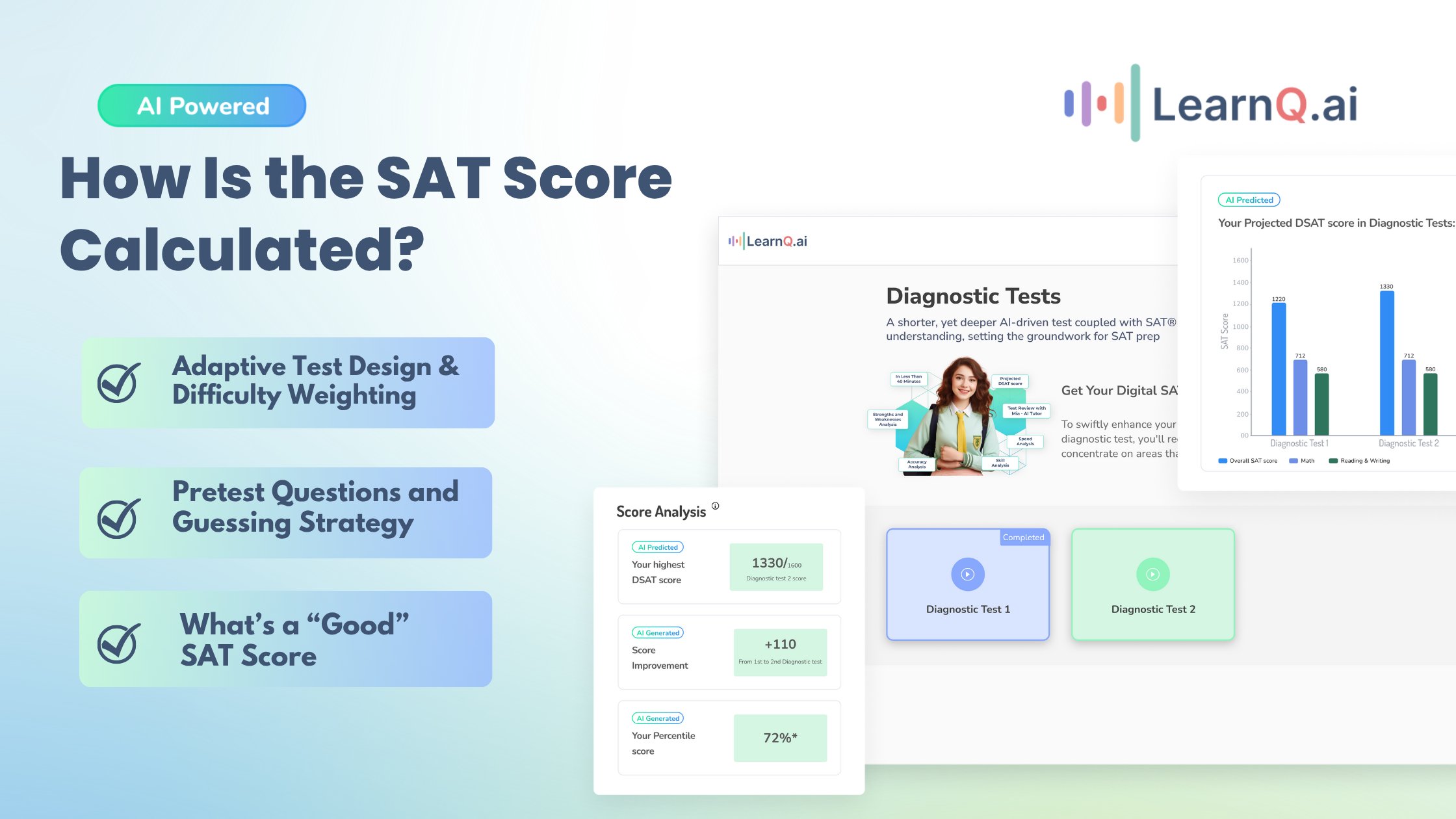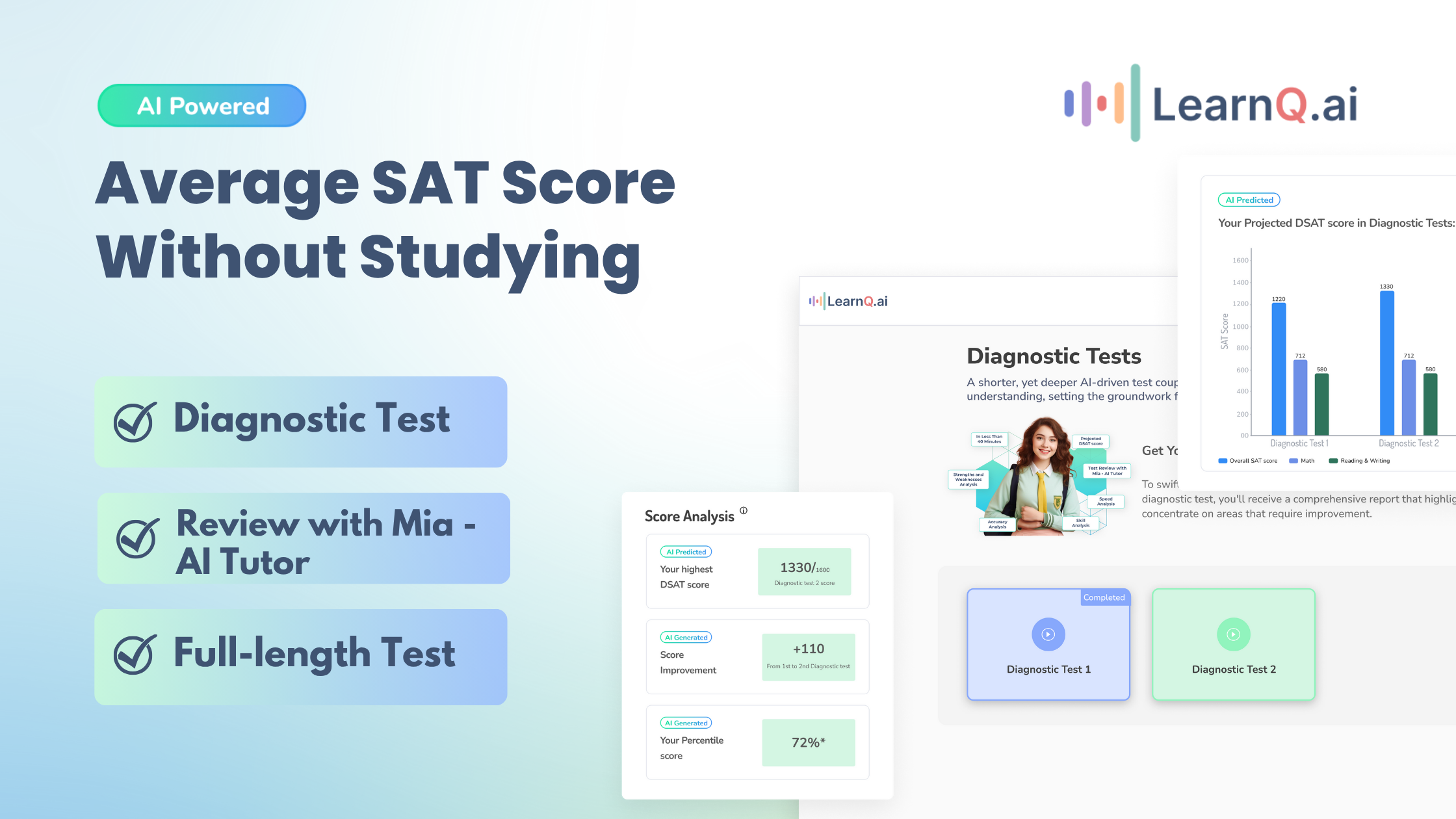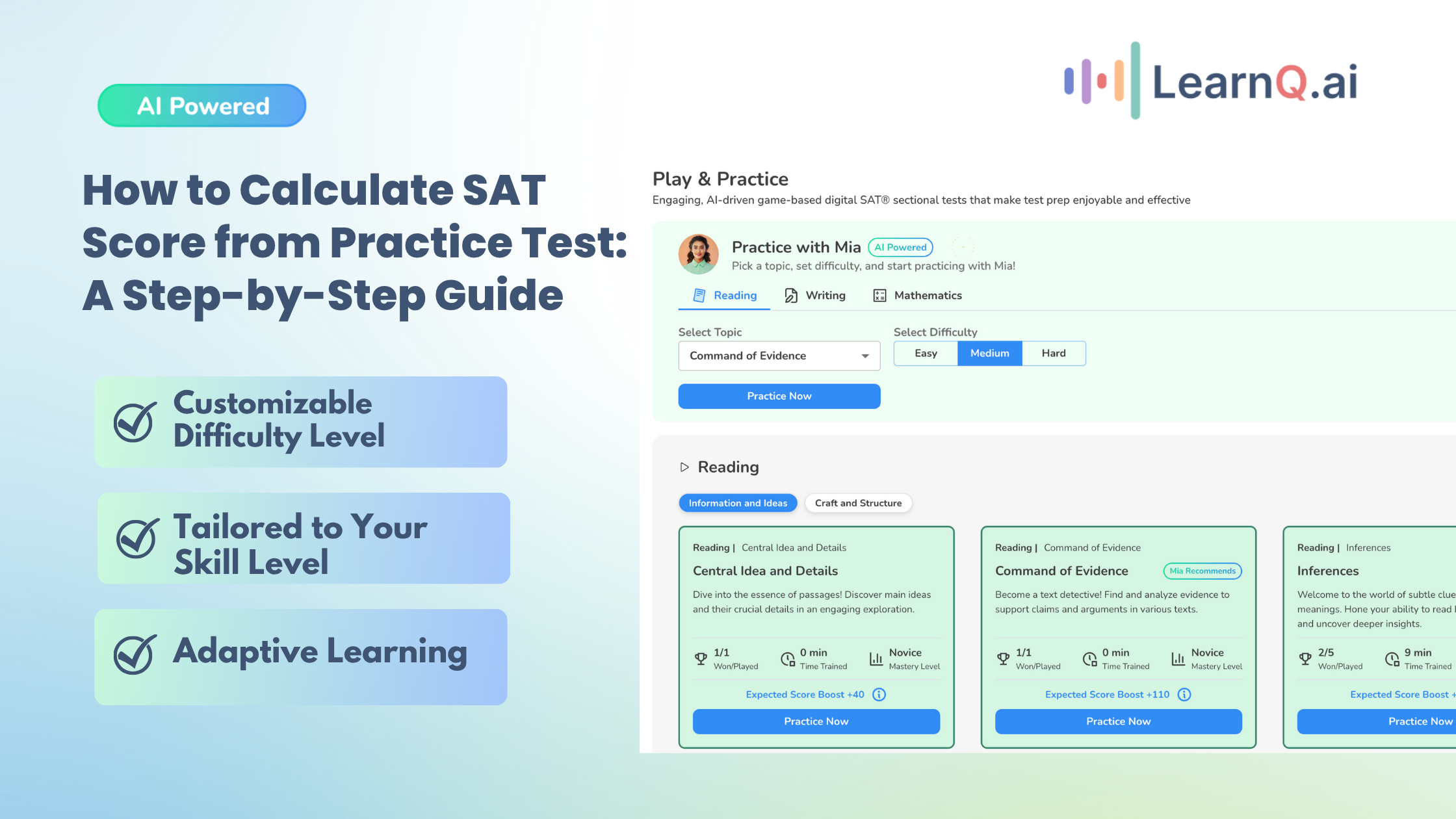Getting an 1100 on the SAT can feel confusing; you’re above the national average, but what does that really mean for your college applications?
With scores ranging from 400 to 1600, understanding where your score fits in is key. You might ask yourself: is 1100 a good SAT score? Is it good enough for the colleges you’re interested in? Or is this score competitive enough?
LearnQ.ai is Powered by VEGA AI—Is your Institute Next?
Give students a Duolingo-style test-prep platform with Shopify-level customization for tutors and institutes.
In this guide, you’ll find answers to your questions about an 1100 SAT score. We’ll explain SAT scoring and what 1100 means and list colleges that accept this score.
You’ll also learn about other admissions factors, such as GPA and extracurriculars, and discover how LearnQ can support you if you aim to improve.
By the end, you’ll know if an 1100 opens your desired doors.
Understanding SAT Scores
Understanding the answer to “Is 1100 a good SAT score?” helps to look at how SAT scores work and where this score stands compared to others.
Score Range
When you’re looking at SAT scores, it’s helpful to know the breakdown so you can see where a student’s strengths are and how close they are to hitting college expectations. Here’s the scoring range:
- Total Score: 400 to 1600
- Math Section: 200 to 800
- Evidence-Based Reading and Writing (EBRW) Section: 200 to 800
These two sections add up to the total SAT score, which gives colleges a snapshot of a student’s readiness for college.
Knowing these ranges helps teachers and counselors advise students on how their scores align with different college goals.
Enhance your Digital SAT study routine with AI-driven insights and personalized practice tests.
Percentiles
When you score an 1100 on the SAT, you land in the 61st percentile. This puts you slightly above average, meaning you did better than 61% of other test-takers.
Knowing this percentile is helpful for teachers and counselors; it helps guide students on whether 1100 makes them a strong candidate for specific colleges or if it might be worth retaking the SAT to increase their chances at more competitive schools.
Now that you know how SAT scoring works, let’s look at what 1100 really means for your college choices.
Also read: Adaptive SAT Practice and Preparation Like Real Digital SAT Exam
Is 1100 a Good SAT Score?
An SAT score of 1100 can mean different things depending on your goals and the schools you’re interested in. Here’s how to think about it:
General Assessment
With the national SAT average around 1050, scoring 1100 puts you above average. It’s a solid score but may not be enough for highly competitive schools, where the average SAT is often above 1300. However, an 1100 can be a strong starting point for many other colleges.
Competitive Edge
An 1100 can give you a competitive edge at many schools, especially regional universities and colleges with moderate admissions standards.
For teachers and counselors working with students, 1100 can mean solid options and an opportunity to find a good college fit without aiming for ultra-competitive admissions.
Other Factors to Consider
An 1100 is just one piece of the puzzle. Colleges also look at GPAs, extracurriculars, and letters of recommendation.
If your GPA and involvement are strong, an 1100 could be enough to create a balanced application.
So, now that you understand what an 1100 SAT score means, let’s look at some colleges where this score can work in your favor.
Colleges That Accept an 1100 SAT Score
With an 1100 SAT score, many college options match your score well. Here’s a quick look at some schools where an 1100 can put you in a good spot.
State Universities
Many state universities welcome students with an 1100 SAT score. These schools often look at your GPA and activities too. Here are a few examples:
- University of Maine: An 1100 score is within the usual range here, especially if you also have a strong GPA.
- University of North Carolina at Greensboro: Known for its friendly campus, UNCG is a solid choice with an 1100.
- Eastern Michigan University: An 1100 can make you a strong candidate here, especially if you have good grades and are active in school or community activities.
Community Colleges
Most community colleges have open admissions, meaning they don’t require SAT scores, so the answer to is 1100 a good SAT score can vary depending on your goals.
Still, an 1100 can set you up nicely for transferring to a four-year school later. Here are some popular community colleges:
- Miami Dade College (Florida): One of the largest community colleges, Miami Dade offers transfer paths to Florida’s public universities.
- Santa Monica College (California): Known for its high transfer rates to the University of California and California State schools, Santa Monica College is an excellent choice if you plan to transfer.
- Northern Virginia Community College (NOVA): NOVA has transfer agreements with Virginia schools like the University of Virginia, making it a strong starting point.
Regional Colleges
Regional colleges often have smaller campuses and can be a good match for an 1100 SAT score. Here are a few options:
- Appalachian State University (North Carolina): With a welcoming campus, App State is a good option with an 1100 score.
- University of Houston-Downtown (Texas): UHD values a mix of student backgrounds, and your 1100 score is in the right range here.
- Western Kentucky University: With an 1100, you’re within the average range at WKU, which also has helpful support programs.
While knowing which colleges accept an 1100 SAT score is helpful, it’s also important to understand what admissions teams look for beyond test scores.
Factors Influencing College Admissions
As said earlier, your SAT score is just one part of your college application. Here’s what else colleges look at when deciding on admissions.
Holistic Review
Most colleges use a “holistic” review, meaning they look at your full profile, not just your SAT score.
They also consider your GPA, letters of recommendation, and personal essays. A strong GPA can help offset a lower SAT score, while great recommendation letters and a thoughtful essay can make a big difference.
Colleges want to see who you are as a student and a person, so these parts of your application matter greatly.
Specific Programs
Remember that score requirements can differ if you apply to a specific major or program.
For example, fields like engineering or business often want higher SAT scores than the general college requirement.
The arts or humanities programs may focus more on other parts of your application. Knowing this can help you focus on the areas that matter most for your chosen field.
Now that you know what colleges look at in admissions, you might think about boosting your SAT score and strengthening your overall application. That’s where LearnQ can step in to help.
Enhance your Digital SAT study routine with AI-driven insights and personalized practice tests.
How LearnQ Can Help
As a teacher, you know that every student has strengths and weaknesses. LearnQ makes it easier to help each one improve by focusing on what they need most.
Here’s how its features can support your students’ SAT prep—and save you time.
Targeted Practice
LearnQ’s practice materials focus on the skills each student needs to improve.
Instead of reviewing what they already know, students can focus on areas where they’ll see the biggest boost in their scores. This approach helps them make real progress without wasting time.
SAT AI Tutor- Mia
LearnQ includes an AI-powered tutor, Mia, who acts like a personal SAT coach. Mia can help your students right when they get stuck, explaining tough questions and walking them through problems step-by-step.
This means students get support when they need it, even outside of class.
Full-Length SAT Practice Tests
LearnQ also has full-length SAT practice tests to help students get used to the test format and timing.
These tests show students what the real test day will feel like and help them build their stamina.
Plus, you can use the test results to track their progress and see where they still need help.
Personalized Study Plans
LearnQ offers customizable study plans so each student can set up a schedule that works for them. Students can start with free diagnostic tests, which tell them what to focus on.
Whether they study a little each day or a few times a week, they’ll have a plan that keeps them organized without adding more work for you.
Analytics and Feedback
LearnQ tracks each student’s progress and shows their strengths and weaknesses. This helps you see how they’re doing and where they need more practice.
With this feedback, you can guide them in the right direction and ensure they always work on the areas that matter most.
Also read: How to get started with LearnQ.ai for FREE?
LearnQ.ai is powered by VEGA AI—Is your institute next?
Offer students a Duolingo-style test-prep platform with Shopify-level customization for tutors and institutes.






Conclusion
An SAT score of 1100 places you slightly above average, giving you a solid start and opening up a range of college options, especially if your GPA and extracurriculars are strong.
So, is 1100 a good SAT score? While some competitive schools may expect higher scores, an 1100 is a strong foundation for many institutions.
LearnQ offers the features you need to prepare effectively to improve your score.
With Mia, the SAT AI Tutor, and full-length practice tests, you can focus on your weaker areas, build confidence, and join the SAT students community on Discord.
Ready to boost your SAT prep? Start with LearnQ and discover resources to help you reach your target score.


